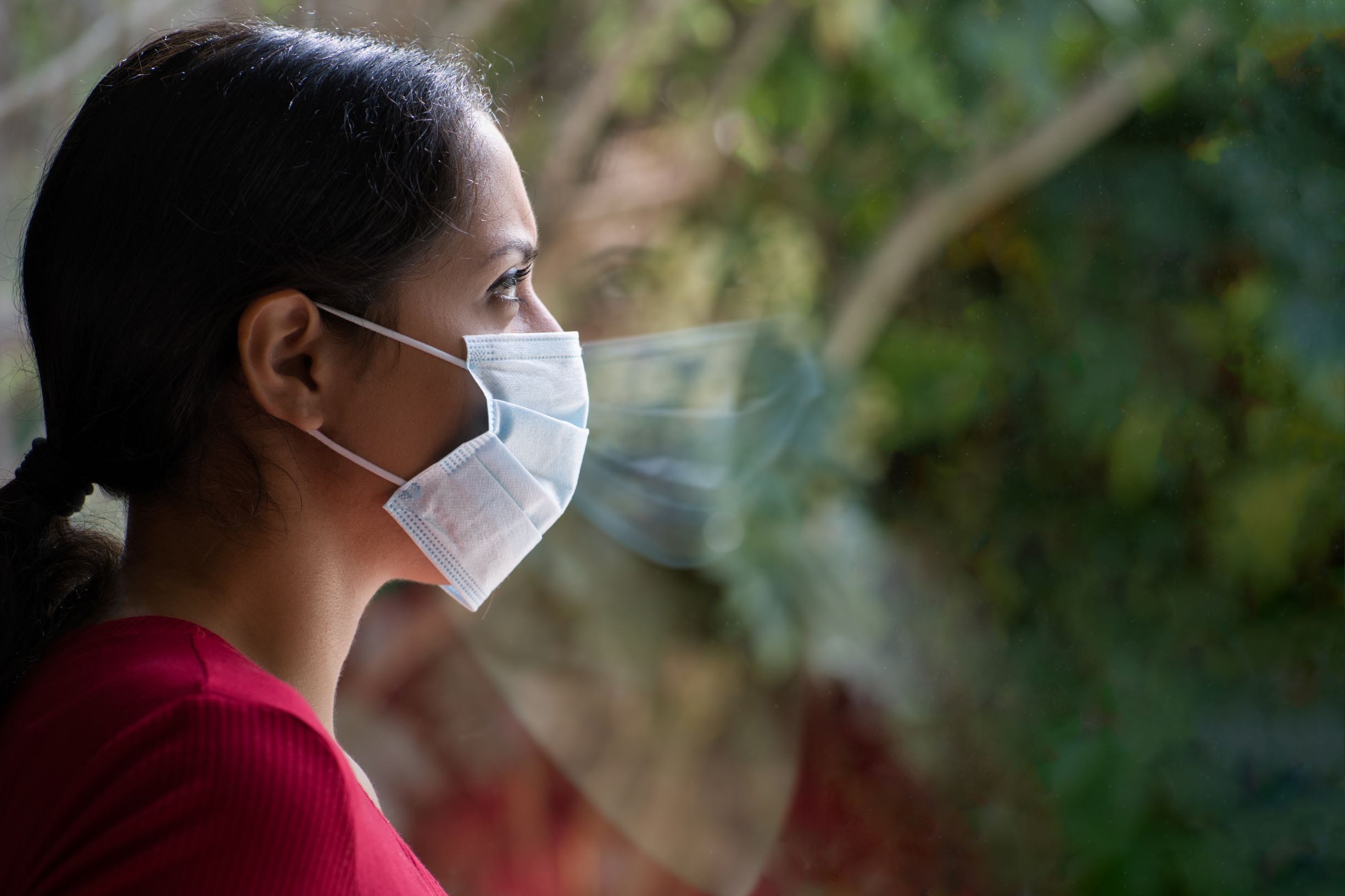Depression and anxiety are skyrocketing in young adults amid pandemic
In a recent survey, more than 60% of young adults reported symptoms of anxiety or depressive disorder.

Anxiety, depression and suicidal thoughts are skyrocketing amid the COVID-19 pandemic, a new study suggests.
The study, from the Centers for Disease Control and Prevention (CDC), found that young adults were particularly prone to these increases.
The study researchers analyzed information from more than 5,400 U.S. adults ages 18 and older who completed an online survey in late June.
Related: 7 ways depression differs in men and women
The percentage of Americans reporting symptoms of anxiety disorder increased about threefold and the percentage reporting symptoms of depressive disorder increased about fourfold, compared with levels seen in a survey conducted around the same period in 2019, the study found.
Overall, in the 2020 survey, about 41% of participants reported symptoms of at least one mental health condition; with 31% experiencing symptoms of anxiety or depression, 13% initiating or increasing use of substances (including alcohol or marijuana) to cope wtih stress tied to the pandemic, and nearly 11% reporting that they had seriously considered suicide in the past 30 days.
The toll was particularly striking among adults ages 18 to 24. In this group, about 63% reported symptoms of anxiety or depressive disorder, 25% reported starting or increasing use of substances, and 25% reported seriously considering suicide in the past 30 days. For comaprision, in a national survey conducted in 2018, about 14% of young adults reported an episode of major depression and 11% reported serious thoughts of suicide in the past year.
Sign up for the Live Science daily newsletter now
Get the world’s most fascinating discoveries delivered straight to your inbox.
The new findings "highlight the broad impact of the pandemic and the need to prevent and treat these conditions," the authors wrote in their study, published Thursday (Aug. 13) in the journal Morbidity and Mortality Weekly Report.
The study could not determine the reason for the rise in mental health conditions, but factors relating to the pandemic, such as social isolation, school and university closures, unemployment and other financial worries, as well as the threat of the disease itself, may play a role, the authors said. Future studies will be needed to determine the specific drivers poor mental health in the pandemic.
Why young adults seem particularly affected by the pandemic is not known. After all, studies have found that young people are less likely to experience serious illness from COVID-19 compared with old adults. But older adults in the study had the lowest prevalence of mental health symptoms: Among those ages 65 and older, 8% reported experiencing symptoms of anxiety or depression, 3% reported starting or increasing use of substances and 2% reported seriously considering suicide in the past 30 days.
One idea is that people's ability to accept uncertainty may be tied to their mental health response, according to The New York Times. "Now there are so many questions, especially for young people, about relative risk, duration of the pandemic and what their futures will look like," study lead author Mark Czeisler, a psychology researcher at Monash University in Melbourne, Australia, told the Times. A longer life experienced may help older adults better tolerate these uncertain times.
There is an urgent need to address the mental health consequences of the pandmeic, such as through increased access to resources for diagnosis and treatment of mental health conditions and expanded use of telehealth, the authors said.
If you or someone you know needs help, contact the National Suicide Prevention Lifeline at 1-800-273-TALK (8255).
Originally published on Live Science.

Rachael is a Live Science contributor, and was a former channel editor and senior writer for Live Science between 2010 and 2022. She has a master's degree in journalism from New York University's Science, Health and Environmental Reporting Program. She also holds a B.S. in molecular biology and an M.S. in biology from the University of California, San Diego. Her work has appeared in Scienceline, The Washington Post and Scientific American.










